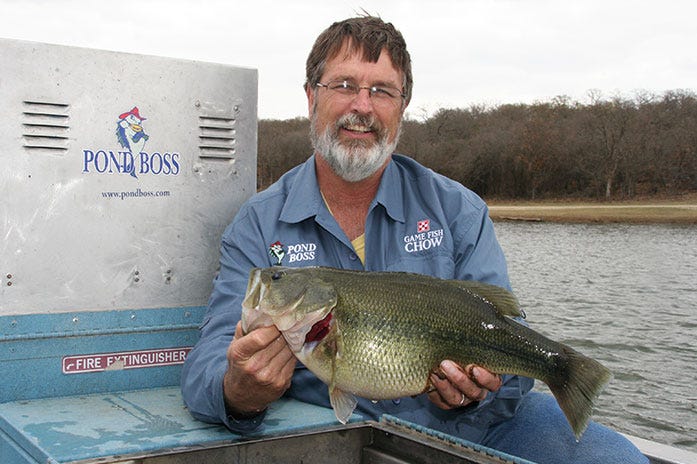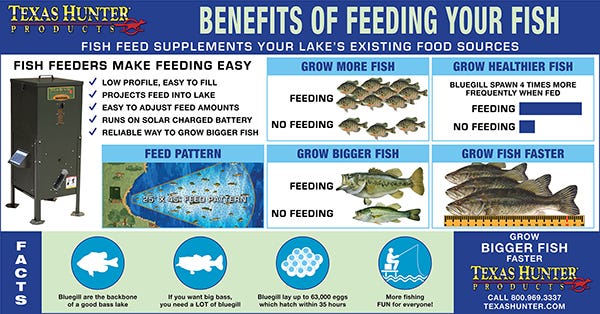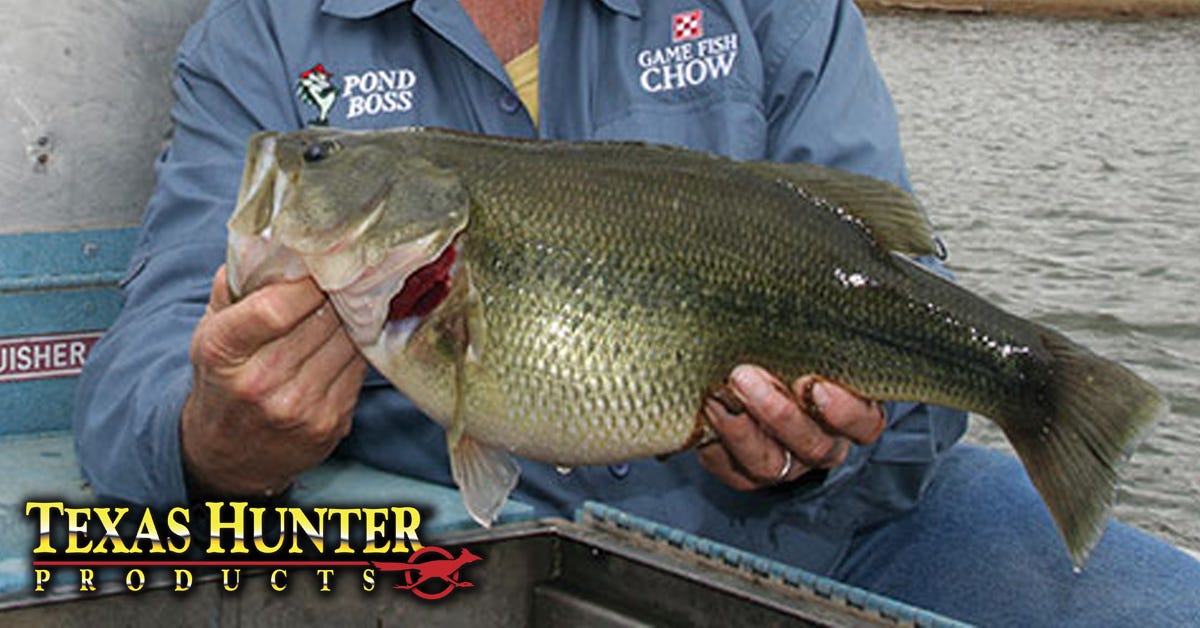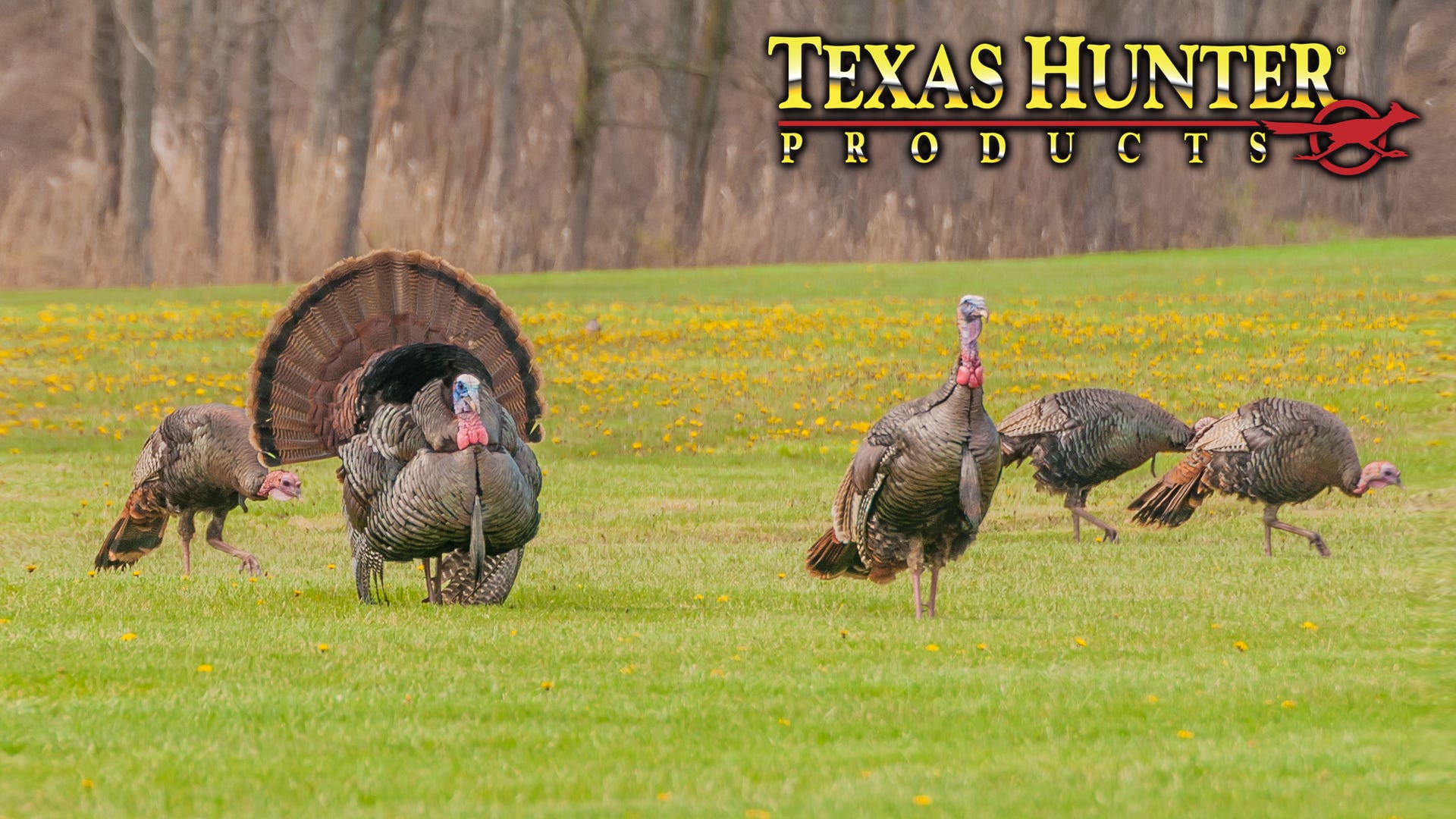- Jul 20, 2016
How to Produce Trophy Bass

How to Produce Trophy Bass by Bob Lusk the Pond Boss
In past years, feeding fish was a past-time. Folks were entertained by the novelty of finny critters chasing floating food pellets on the surface. They had not been informed about the benefits. What a difference a few years and fisheries science has made for today’s off-the chart results for–feeding fish.
High protein formulas fed regularly in automatic fish feeders grow bluegill so big you can’t grip them with your hand. You must lip them like a bass. Before fish food, bass, bluegill and other sportfish relied on natural forage. Small ponds just couldn’t produce necessary volumes of baitfish to meet nutritional requirements for normal growth. Bass would stunt. Not anymore.
Feeding fish not only accelerates fish growth and family fun, it greatly improves fish health. Bigger, healthier bluegill produce more eggs. Greater reproduction builds the food chain for sportfish like bass. Remember, a largemouth bass MUST consume approximately 10-pounds of baitfish to grow one, single pound. If your goal is growing trophy bass, it takes hundreds of pounds of bluegill.
Fish will tell you how much to feed. The amount of food you dispense is contingent on the fish population. Only offer as much as they can consume in 10 to 15-minutes. If your goal is growing saucer-size bluegill feed at 8 a.m., 1 p.m., and 6 p.m. Cut back to morning and evening times during hot, summer months. About October 1, resume three offerings until early December. At spring start-up, set the fish feeder timer at three seconds. Gradually increase feed times to five-seconds as water warms and fish become more active. The primary rule, ensure there are no leftover food pellets on the surface after fish get full and stop eating. If you see uneaten pellets, reduce the time slightly until you find the perfect balance.
Growing bigger bluegill and trophy bass requires an effective feeding strategy. Utilizing a reliable fish feeder to accurately dispense fish feed is the foundation of a successful feeding program. Texas Hunter fish feeders are available in a variety of sizes and will feed your fish automatically 1 to 9 times per day. Learn more at http://www.texashunterproducts.com/fish-feeders/
Don’t miss another day of valuable benefits from a fish feeding program. What’s your preference, big bluegill, bass, or hybrid striper?
Fisheries biologist Bob Lusk is in his fourth decade helping people design, build, stock and manage private fishing ponds and lakes as a consultant. Bob is also editor of the nation’s leading pond management publication, Pond Boss Magazine celebrating 25 years this month. You can subscribe to Pond Boss at www.PondBoss.com and reach Bob through that website, or his business website at www.BobLuskOutdoors.com. Bob’s staff is available to assist pond owners, too. Office number is (903)564-5372.



